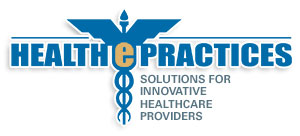David and Goliath and Telehealth

Having worked with several successful telemedicine/telehealth startups, I have long been captivated with the question of, “How does an ambitious new entrant company successfully do business with a much larger, well entrenched company?” This question applies to all start-ups, but my experience in telehealth/telemedicine provides some insights which can be appreciated by all companies.
Quick background. I have held senior business development positions with two startup teleradiology companies and recently served as CEO of The TeleDentists, a startup teledentistry company. Both teleradiology companies achieved the status of Inc. 5000 fastest growing private companies (three times each) and were acquired as part of successful rollups. The TeleDentists may have a similar successful fate.
The TeleDentists is the only telehealth company with licensed dentists in all 50 states. Since the start of the Covid-19 pandemic they have successfully delivered over 10,00 consultations for patients with toothaches, broken teeth, and bleeding gums. Early pandemic collaborations with Cigna and Anthem were true telehealth David & Goliath success stories. On August 1, The TeleDentists began delivering service to a major hospital system in Michigan where their service is available in three hospital emergency rooms and three ambulatory care facilities. This is a significant milestone for several reasons. While the American Hospital Association reported that 76% of hospitals used telehealth1, this will be the first major deployment of teledentistry in a hospital. They are still waiting for permission to announce the alliance.
It only took close to four years from initial conversation to implementation. What took so long?
The good news is that The TeleDentists found on the hospital side a champion, an emergency room physician with a true vision of the potential for the program. So often when working with a large organization, the champion leaves or gets re-assigned, and that was not the case here. Even a visionary at the hospital cannot make the decision and commitment alone. Administration, Legal, and IT were just a few of the departments which needed to be involved. Contract negotiation, Security Audits, and Hospital Credentialing all needed to be included. The Covid-19 crisis proved to be another hurdle as the hospital rightfully had other priorities during the crisis.
So, what are the crucial lessons learned? These are the first ones that come to mind.
- Need a champion with a vision, a good internal network, and a track record of prior success.
- Persistence and a belief that all hurdles can be overcome.
- Don’t put all your eggs in one basket. Look for other projects and opportunities with smaller customers that can keep you afloat while you are waiting for “the big one”.
What took so long?
- Contracting
- Lawyers – Every lawyer will have their say about a contract. One suggestion is to ask to use an agreement that the larger facility is already comfortable with.
- Insurance – It is understandable that the large entity wants to protect themselves, but they may require that the small entity carries types and levels of insurance that are difficult to financially justify.
- IT
- Security Audits – The larger entity will want to conduct a Security Audit. Wouldn’t it be nice if there was a way to do this once, and have an organization certify that all requirements are met?
- Integration – Each large hospital organization has their own EMR. Once you have performed an integration with EPIC, you have performed one integration with EPIC. It may not be easier the second time. Every EMR has their own unique requirements and if a hospital has undergone mergers, it may be necessary to integrate with multiple EMRs.
- Changes
- Over the course of a long negotiation, change in technology is likely. This may require re-doing steps that have already been completed.
- Covid-19
- It could not be anticipated that Covid-19 would play into the equation. Covid-19 hit Michigan especially hard. It is still unknown how Covid will impact relationships between providers and vendors.
- A crisis is not necessarily a bad thing for a nimble startup company. My favorite quote during the pandemic was when our Cigna partner said, “we just got done in 6 days what usually takes us six months.” Having the infrastructure in place to be able to respond certainly helped.
Going Forward
The challenges don’t stop with a successful initial implementation. Training is essential and can be a challenge if done remotely. It is essential to have a communications plan in place. I have also seen where constant staff changes were a primary unexpected challenge in a nursing home telehealth implementation. The hospital system has additional facilities and expansion is likely if the program is a success.
Other David and Goliath challenges.
In 220 Becker’s reported that there were 260+ telehealth companies3 and I suspect that the pandemic has launched many new ones. It is the goal of many of these new entrants (Davids?) to be acquired by the larger ones (Goliaths?) It certainly didn’t escape attention when Teladoc acquired Livongo for $18.5 billion just a year ago.4 If Teladoc is looking for billion-dollar deals, the startup telehealth companies have a long way to go to catch their attention.
Even partnerships can be a challenge. If a company with $1Million in annual revenue looks to partner with a major medical distributor with $10Billion in annual revenue, the priorities may not be compatible. A $250,000 revenue opportunity increases annual revenue by 25% for the smaller company, but only .0025% for the larger firm. Certainly, the larger firm has other priorities to capture their attention and resources. (Please contact me a hreis@healthepractices.com to hear the details.)
The next time you hear about a David versus Goliath story, don’t think of an underdog. Think of a confident competitor who is more than happy to be underestimated.
I am also thrilled to write about the new David in my life as my grandson David turned one year old last month. I look forward to being in his corner as he takes on the various Goliaths in his life.

Notes:
- https://www.aha.org/factsheet/telehealth
- https://www.healthcaredive.com/news/in-latest-merger-bid-beaumont-seeks-union-with-spectrum-health-to-create/602048/
- https://www.beckershospitalreview.com/lists/260-telehealth-companies-to-know-2020.html
- https://www.fiercehealthcare.com/finance/teladoc-finalizes-blockbuster-deal-livongo-less-than-three-months




Leave a Reply
Want to join the discussion?Feel free to contribute!